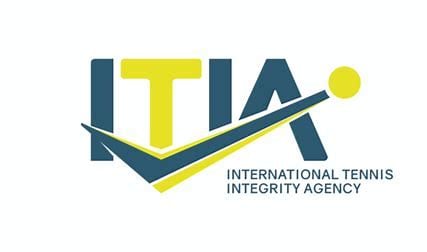WADA’s 2024 Prohibited List now in force
Agency calls on athletes, entourage, and all stakeholders to note major modification concerning tramadol
The World Anti-Doping Agency (WADA) wishes to remind stakeholders that the 2024 List of Prohibited Substances and Methods (List) and the 2024 Monitoring Program enter into force today (1 January 2024). The 2024 List was approved by WADA’s Executive Committee (ExCo) during its meeting on 22 September 2023 and was first published on 28 September 2023.
The List is one of the eight International Standards that are mandatory for all Signatories of the World Anti-Doping Code (Code). It designates what substances and methods are prohibited both in- and out-of-competition and which substances are banned in particular sports.
Major Modifications for 2024
All Major Modifications for 2024 are outlined in the 2024 Summary of Major Modifications and Explanatory Notes, including the following particular information regarding tramadol:
On 23 September 2022, the ExCo endorsed the recommendation by WADA’s List Expert Advisory Group (EAG) to prohibit the narcotic tramadol in competition, effective 1 January 2024. The delay in implementation was to ensure stakeholders had enough time to learn and adapt to this change, especially as it pertained to the education of athletes, their entourage, and medical personnel.
Tramadol has been on WADA’s Monitoring Program and data gathered through that program have indicated significant use in sports. Tramadol abuse, with its risk of physical dependence, opiate use disorder and overdoses, is of concern worldwide and has led to it being a controlled drug in many countries. Research studies funded by WADA, as referenced in the Explanatory Note, have also confirmed the potential for tramadol to enhance sports performance.
Annual List Review Process
WADA leads an annual revision process concerning the List, beginning with an initial meeting in January and concluding with the publication of the List by 1 October. This is an extensive consultation process that includes WADA’s List EAG gathering information, including the latest scientific and medical research, trends, and intelligence gathered from law enforcement and pharmaceutical companies; circulating a draft List among stakeholders; and, taking their submissions into consideration to revise the draft, followed by review by the Agency’s Health, Medical and Research (HMR) Committee. The HMR Committee then makes its recommendations to WADA’s ExCo, which approves the List during its September meeting.
For a substance or method to be added to the List, it must be determined that it meets at least two of the following three criteria:
- It has the potential to enhance or enhances sport performance
- It represents an actual or potential health risk to athletes
- It violates the spirit of sport
The full 2024 List was published on 28 September 2023, giving more than three months’ notice to athletes, their entourage, and other stakeholders, enabling them to acquaint themselves with any modifications. Ultimately, athletes are responsible for prohibited substances found in their bodies and prohibited methods found to have been used. Athletes’ entourages are also liable for Anti-Doping Rule Violations if determined to be complicit. Consequently, if there is any doubt as to the status of a substance or method, it is important that they contact their respective Anti-Doping Organizations (International Federation or National Anti-Doping Organization) for advice.
Therapeutic Use Exemption Program
It should be noted that for athletes who have a legitimate medical reason for using a prohibited substance or method that is on the List, they can apply for a Therapeutic Use Exemption (TUE) to determine whether they meet the criteria outlined in the International Standard for Therapeutic Use Exemptions (ISTUE). The TUE Program is a rigorous and necessary part of elite sport which has overwhelming acceptance from athletes, physicians, and anti-doping stakeholders.
Educational Resources
In addition to the documents linked above, WADA has provided, or will provide, a number of educational resources as part of its Code Implementation Support Program (CISP). These resources can be accessed through the links below and on the Agency’s Anti-Doping Education and Learning Platform (ADEL) and include:
-
A CISP Checklist – Implementing Revised List (available now - originally published January 2021)
-
Athlete and Athlete Support Personnel (ASP) Factsheet on tramadol (available now)
-
Medical Professionals Factsheet on tramadol (available now)
-
Athlete and ASP Guide to the 2024 List (to be available in January 2024)
Languages and Formats
The 2024 List, the 2024 Summary of Modifications and Explanatory Notes, and the 2024 Monitoring Program are available for download on WADA’s website in English, French, and Spanish. The list is also available in Arabic, German, Greek, Portuguese, and Turkish.
Stakeholders wishing to translate the List into other languages are kindly asked to signal their interest to
The List’s mobile-friendly digital edition is now available.


 Global Summit 2024
Global Summit 2024